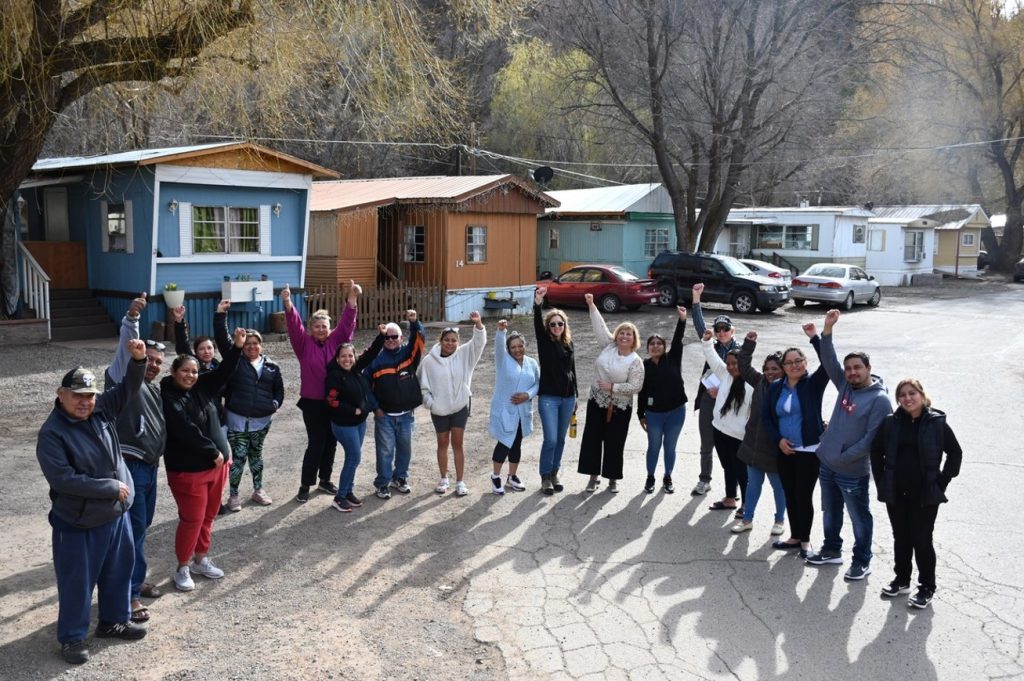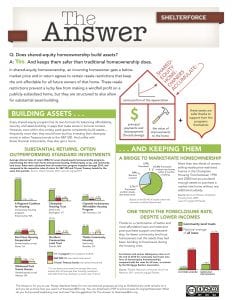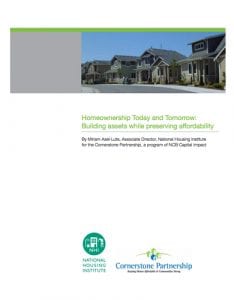Tag
permanent affordability
The Latest

Let’s Harness the Growth of the Shared-Equity Field
Between 2011 and 2022, the number of nonprofits with shared-equity programs and CLTs increased by 30 percent. Here's a look at the diversity of their programs and portfolios, and who's benefiting from their rise.
Search & Filter Within this Topic
filter by Content Type
filter by Date Range
search by Keyword

Extreme Makeover: CLT Home Edition
Who doesn’t enjoy a room makeover contest with stunning results? The competition is even more gratifying when it serves a dual purpose: delighting a happy homeowner, and fostering awareness of […]

Community Land Trusts Gain New Activist Allies
The Right to the City (RTC), an activist housing justice alliance, has broadened its agenda to include advocating for community land trusts (CLTs) and other permanently affordable housing arrangements. “We were […]

Interview with Tony Pickett, Urban Land Conservancy
Probably no one in the country is in a better position than Tony Pickett to talk about efforts to include long-term affordable housing in two of the nation’s largest Transit Oriented Development (TOD) ventures: Denver’s FasTracks plan, and Atlanta’s Beltline project.

Q: Are Manufactured Homes a Bad Form of Affordable Housing?
A: Not any more! There are many myths out there about manufactured (or “mobile”) homes, but in fact they can be a very important source of quality affordable housing…

Manufacturing Affordable Homeownership Solutions
It’s time to take factory-built homes seriously as affordable housing.

Shared Equity for the Rich?
One of the common arguments from those who are skeptical of shared-equity homeownership is that it's unfair to ask low-income people to give up their right to 100 percent of […]

A New Kind of Redlining: Punishing Success
During the worst years of the Great American Mortgage Meltdown, shared equity homes represented an island of stability in a turbulent sea of market failure. Whether community land trusts (CLTs); limited […]

Braided Lives: Habitat–Land Trust Partnerships Bring Each Back to Their Roots
Though they started at the same place around the same time, community land trusts and Habitat for Humanity soon went their separate ways. In recent years, however, inventive practitioners have […]

Q: What’s the Point of Shared-Equity Homeownership in Weak Market Areas?
Shared-equity homeownership is best known as a tool to fight displacement in hot-market areas. But in fact, it has many advantages in weak-market areas too.

The Threat (and Promise) of a Good Example
It’s embarrassing to admit, but those who vehemently oppose shared equity homeownership may have a deeper understanding of the sector’s potential than those of us who ardently support it. Our […]

Q: Does Shared-Equity Homeownership Build Assets?
A: Yes! And keeps them safer than traditional homeownership does.

Homeownership Today and Tomorrow: Building Assets While Preserving Affordability
Can low-income families build enough equity in them to transform their circumstances? New research says yes.
